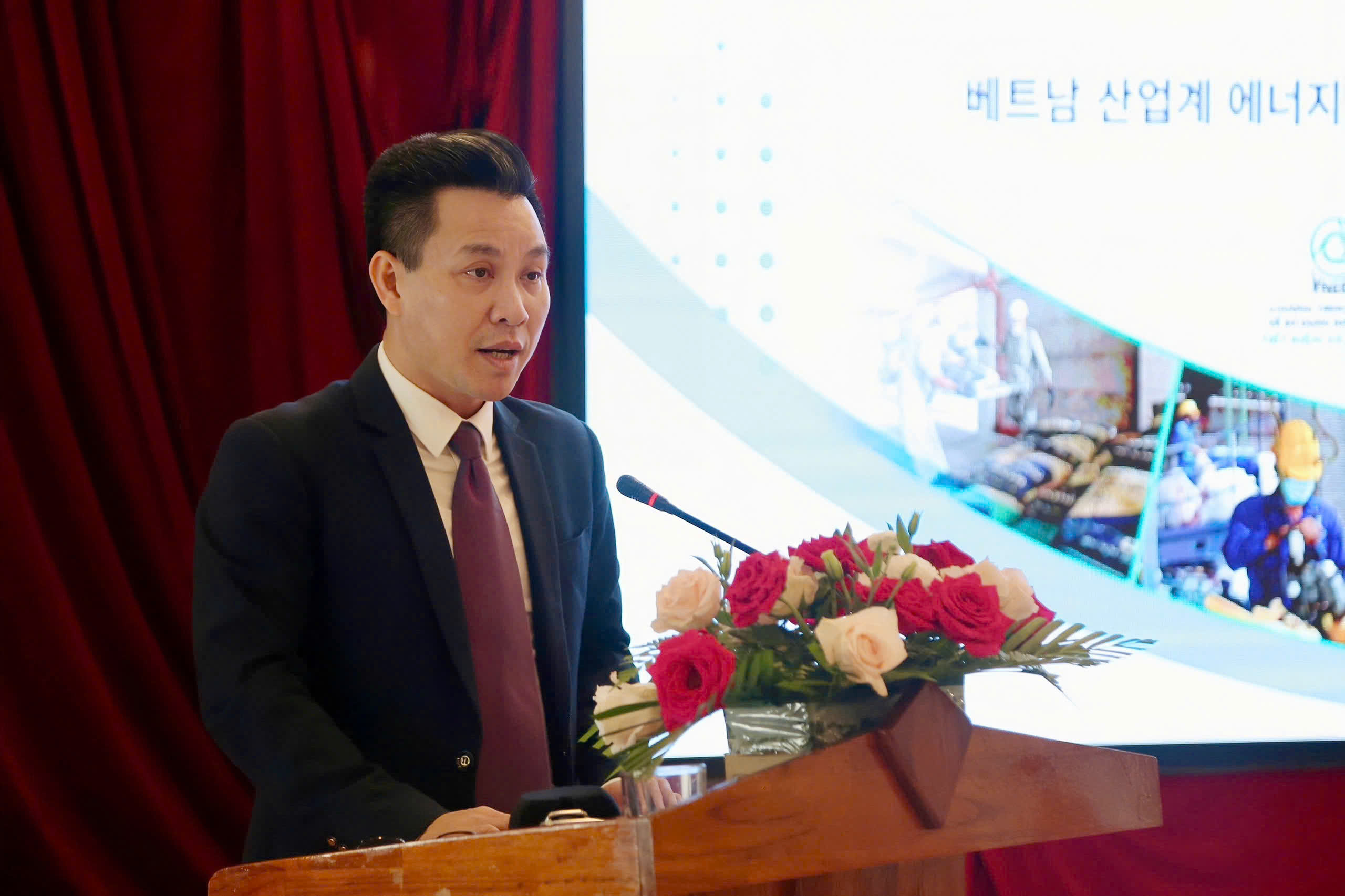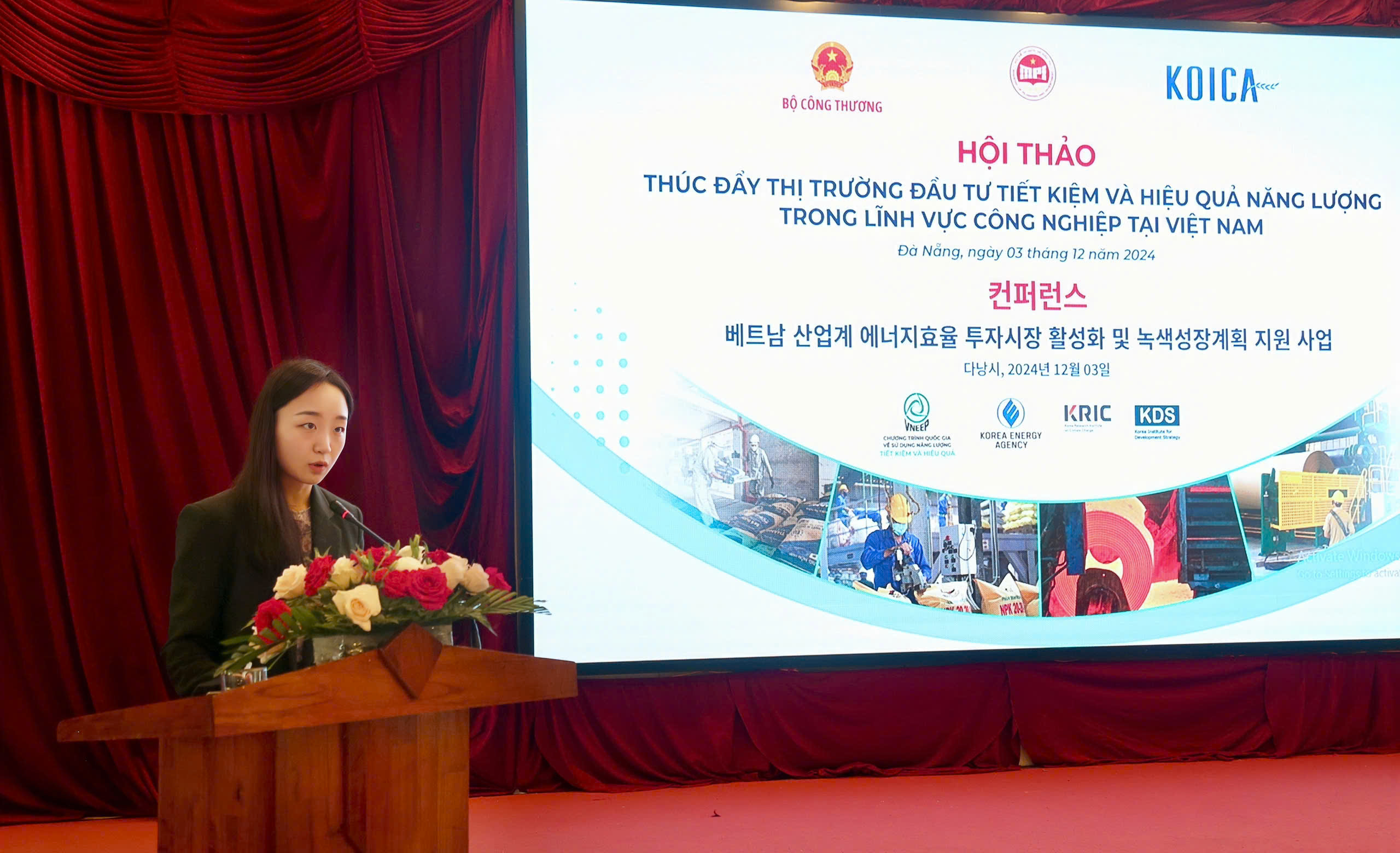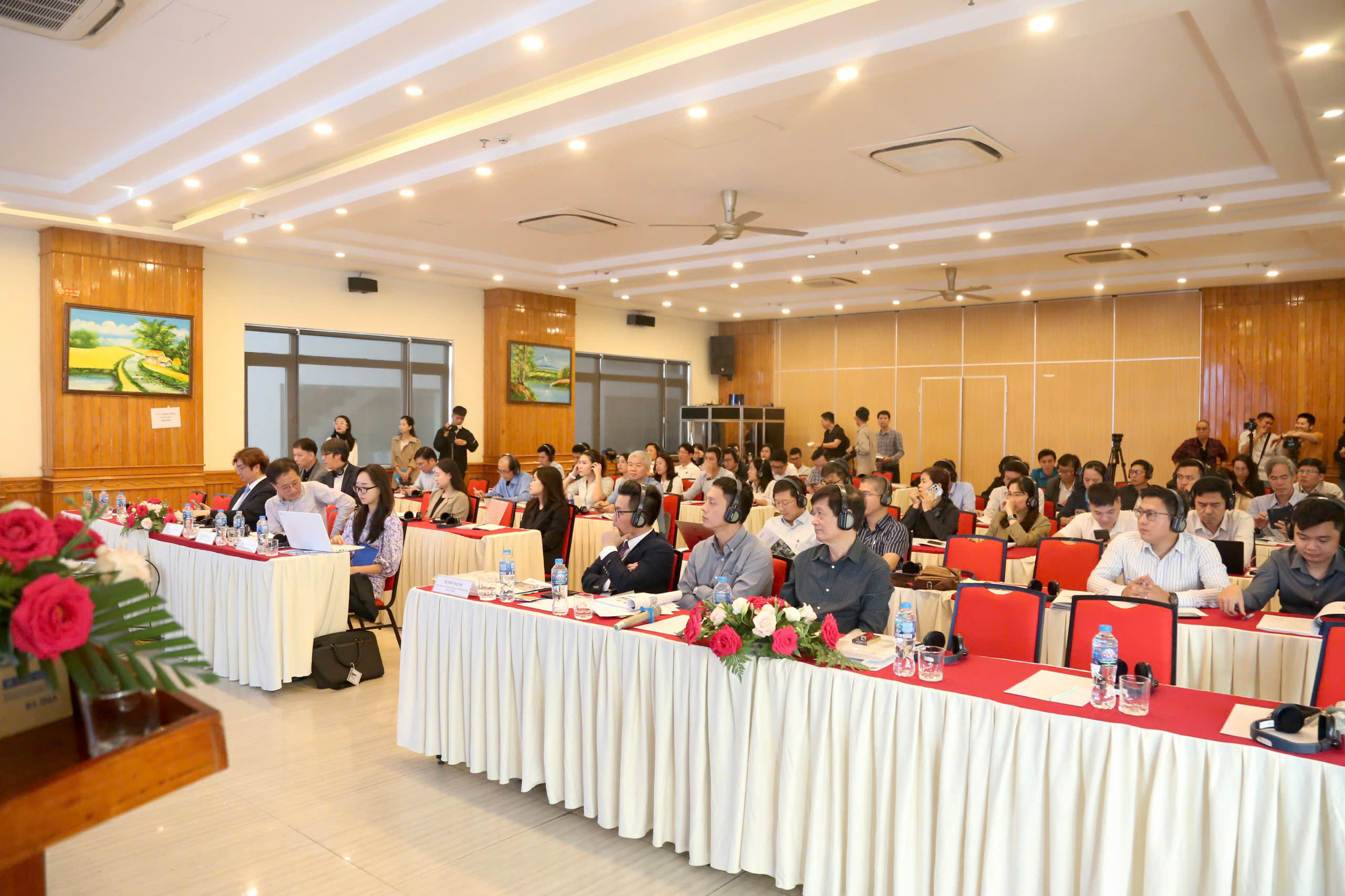
Mr. Quach Quang Dong , Deputy Director General of the Department of Energy Efficiency and Sustainable Development, delivered the opening remarks.
The workshop is part of the “Promoting Energy Efficiency Investment Market in the industrial sector and Supporting the National Green Growth Action Plan of Vietnam” project. This project has been implemented from 2021 to 2025 and will be funded by the South Korean government through KOICA. The project aims to contribute to Vietnam’s national goal of reducing energy intensity by improving energy efficiency in the industrial sector, ensuring energy security for economic and social development, and reducing greenhouse gas emissions to address climate change.
Attendees included Mr. Quach Quang Dong, Deputy Director of the Department of Energy Efficiency and Sustainable Development (Ministry of Industry and Trade); Ms. Yang Seo Hyeon, Deputy Country Director of KOICA Vietnam; and Mr. Kim Sungbok, Director of the Korea Energy Agency. The workshop also brought together representatives from provincial Departments of Industry and Trade, energy efficiency centers across the central region, industrial enterprises, South Korean and Vietnamese energy experts, energy auditing organizations, other energy-related entities, and commercial banks.
In his opening speech, Mr. Quach Quang Dong emphasized that energy security is a key focus in all national policies in Vietnam. He noted that the global energy market has faced significant disruptions recently, including geopolitical tensions and energy supply shortages, which have not only affected livelihoods but also caused volatile energy prices. In the international context, over 100 countries—nearly half of the world’s nations—have committed to reducing greenhouse gas emissions to achieve net-zero emissions.
On March 13, 2019, the Prime Minister approved the Vietnam National Energy Efficiency Programme for the 2019–2030 period (VNEEP3). The program sets a target of achieving 8–10% energy savings of the country’s total energy consumption by 2030.
“In addition to the efforts of the government, organizations, and individuals in Vietnam, we have also received valuable support from international partners, particularly the South Korean government through the project ‘Promoting the Market for Energy-Saving and Efficient Investments in the Industrial Sector and Supporting Vietnam’s Green Growth Action Plan.’ This initiative is highly practical and contributes to the objectives of VNEEP3 in the industrial sector as well as Vietnam’s commitment to achieving net-zero emissions by 2050”, Mr. Dong highlighted.

Ms. Yang Seo Hyeon, Deputy Country Director of KOICA Vietnam, also delivered remarks at the workshop.
Ms. Yang Seo Hyeon, Deputy Country Director of the Korea International Cooperation Agency (KOICA) in Vietnam, stated: “In 2021, KOICA and the Ministry of Industry and Trade launched the project Promoting Energy Efficiency Investment Market in the industrial sector and Supporting the National Green Growth Action Plan of Vietnam. The project aims to enhance energy efficiency in Vietnam's industrial sectors, contributing to sustainable development and environmental protection. Today’s workshop will share the results of energy audits conducted for participating industrial enterprises, provide updates on capacity-building initiatives for energy-saving, and discuss energy consumption standards for the paper and steel industries, along with insights into the Risk Sharing Fund”.
As part of the project’s activities, 20 key industrial enterprises in high-energy-consuming sectors—such as paper, steel, plastics, fertilizers, and cement—were selected to participate in energy audits during 2023 and 2024.
Mr. Kim Sungbok, Director of the Korea Energy Agency, remarked: “Within the framework of the project, South Korean and Vietnamese experts collaborated on conducting energy audits for 20 key industrial enterprises in Vietnam. This resulted in identifying 366 energy-saving solutions, with an annual energy-saving potential of 144,000 TOE (tons of oil equivalent)”.

Participants were presented with the results of energy audits conducted for industrial enterprises under the project.
Additionally, to support the Ministry of Industry and Trade in enforcing compliance with energy efficiency regulations, the project has developed and revised two energy consumption standards for the paper and steel industries. It has also produced five technical guidelines on energy efficiency for sectors such as paper and pulp, textile dyeing, steel, cement, and beer and beverage production.
From 2024 to 2025, the Ministry of Industry and Trade will continue coordinating activities to strengthen capacity in energy-saving investments in the industrial sector. These efforts include updating and revising training curricula for Energy Auditors and Energy Managers, organizing training courses, and certifying 160 energy managers and 40 energy auditors.
The workshop featured six presentations from South Korean and Vietnamese speakers, covering topics such as: An overview of the project; Examples of energy audit best practices in South Korea; Updates on capacity-building initiatives for energy efficiency; Results of developing and revising energy consumption standards for the steel and paper industries; Introduction to the Risk Sharing Fund, coordinated by Saigon-Hanoi Commercial Joint Stock Bank (SHB); Project Outcomes and Impact.
Through the workshop, the project’s activities and results were shared with the industrial business community and society at large, promoting the market for energy-efficient investments. It also helped industrial enterprises identify energy-saving solutions, share project implementation experiences, and access financing to effectively execute energy-saving initiatives.
The project Promoting Energy Efficiency Investment Market in the Industrial Sector and Supporting the National Green Growth Action Plan of Vietnam includes five key components: Developing energy-saving investment projects; Supporting the enforcement of energy consumption standards and providing technical guidelines on green growth; Strengthening capacity for energy-saving investments and implementing the Green Growth Action Plan; Conducting surveys, research, and developing provincial Green Growth Action Plans; Promoting and disseminating energy-saving solutions and green growth action plans at the provincial level.